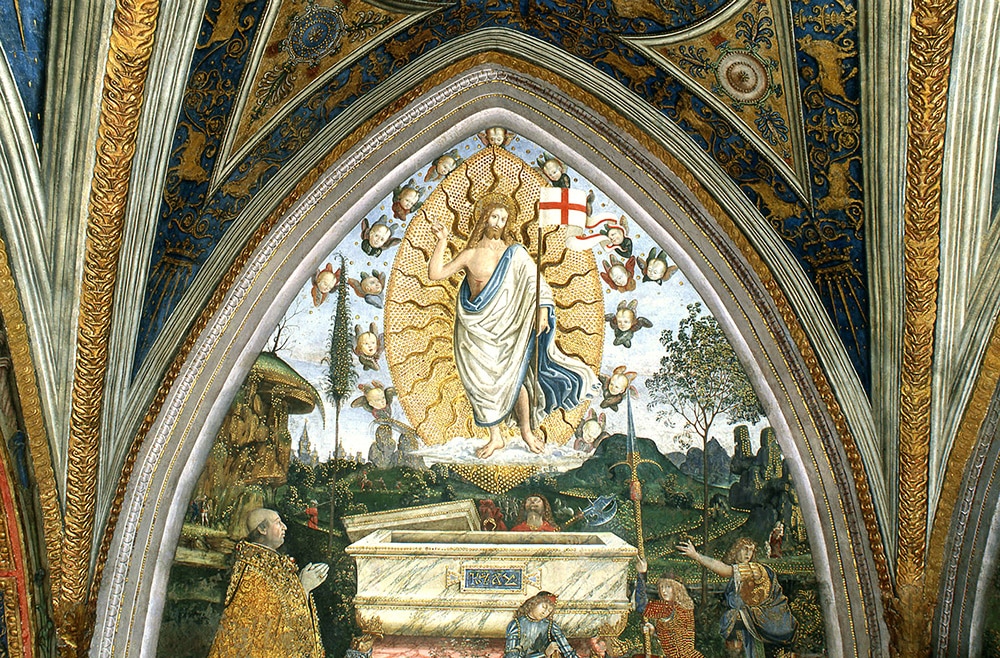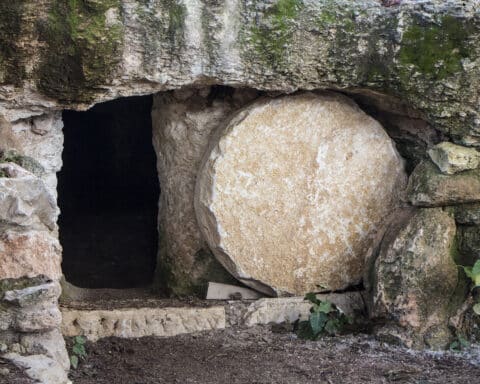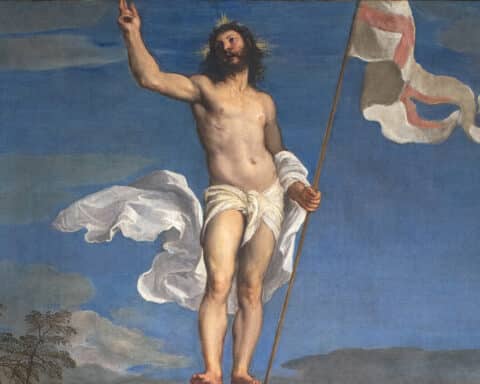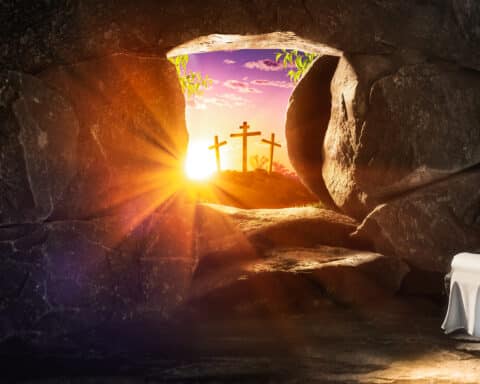
— Name withheld, via email
Answer: Most people would simply say they know that Jesus Christ rose from the dead because it says so in the Bible. While this is true, it is not really the most correct answer. The proper answer is that we know that Jesus is risen from the dead because the apostles said so. They were eyewitnesses to this fact. Jesus himself attests to this when he said: “Thus it is written that the Messiah would suffer and rise from the dead on the third day and that repentance, for the forgiveness of sins, would be preached in his name to all the nations, beginning from Jerusalem. You are witnesses of these things” (Lk 24:46-48).
So it is the eyewitness testimony of the apostles on which our faith in the resurrection of Jesus Christ is founded. Surely, too, the Holy Spirit assists us who have faith to assent to and cling to this truth.
But some, like your friend, will ask, how can we know that what the apostles said and later wrote is true? What if they made the whole thing up, or were suffering from some delusion? What if they just meant by the Resurrection that Jesus merely lived on in their hearts and memory?
The best reply to such questions was given in a homily by St. John Chrysostom: “How could 12 uneducated men, who lived on lakes and rivers and wastelands, get the idea for such an immense enterprise [of spreading the Gospel worldwide]? How could men who perhaps had never been in a city or a public square think of setting out to do battle with the whole world? That they were fearful, timid men, the evangelist makes clear; he did not reject the fact or try to hide their weaknesses. Indeed, he turned these into a proof of the truth. What did he say of them? That when Christ was arrested, they fled, despite all the miracles they had seen, while he who was leader of the others denied him!
“How then account for the fact that these men, who in Christ’s lifetime could not stand up to the attacks by the Jews, now set forth to do battle with the whole world if Christ was dead — if, as you claim, Christ did not rise and speak to them and rouse their courage? Did they perhaps say to themselves: ‘What is this? He could not save himself but now he will protect us? He did not help himself when he was alive, but now that he is dead he will extend a helping hand to us? In his lifetime he brought no nation under his banner, but by uttering his name we will win over the whole world?’ Would it not be wholly irrational even to think such thoughts, much less to act upon them?
“It is evident, then, that if they had not seen him risen and had proof of his power, they would not have risked so much.”
Indeed! And not only did they risk so much, they suffered so much! Every one of them, except perhaps John, died as martyrs. They would never have done this for some lie they had concocted or for some dreamy notion that Jesus still lived on in some way in their hearts. Clearly, they were so convicted and moved by the actual fact of the Resurrection that their lives were utterly changed. We might say in a modern kind of slang: “That thing really rocked their world!”
And as for the charge of delusion, it may be possible for one man to be delusional, maybe even two, but 12 men collectively having the same delusion? To believe this would take more faith than simply to believe they were telling the truth.
Not a lie, not a fanciful hope, not a delusion, only the true fact of the actual Resurrection can really explain the heroic and tenacious going forth of the apostles. These are trustworthy eyewitnesses. Christ is risen indeed.
Msgr. Charles Pope is the pastor of Holy Comforter-St. Cyprian in Washington, D.C., and writes for the Archdiocese of Washington, D.C. at blog.adw.org. Send questions to msgrpope@osv.com.





